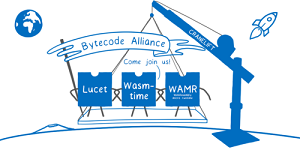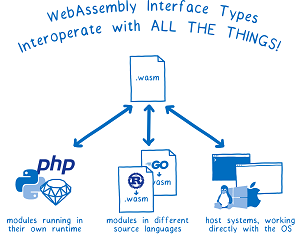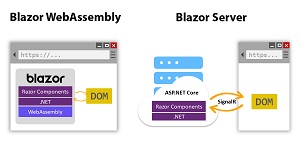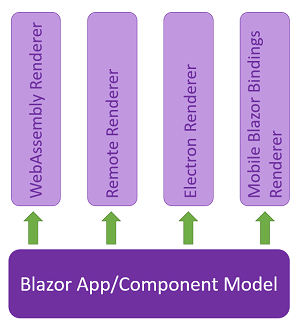News
Microsoft Joins Bytecode Alliance to Further Blazor-Backing WebAssembly Tech
Microsoft and several other industry heavyweights have joined to incorporate the Bytecode Alliance, on a mission to create new software foundations based on standards such as WebAssembly, a key component of Microsoft's Blazor project that allows for web coding with C# instead of JavaScript.
The incorporation of the Bytecode Alliance community as a non-profit organization was also backed by Fastly, Intel and Mozilla, joining new members Arm, DFINITY Foundation, Embark Studios, Google, Shopify, and University of California at San Diego.
The group points to security and other issues with today's models of building software in which disparate components are used to compose applications.
 [Click on image for larger view.] Bytecode Alliance (source: Mozilla).
[Click on image for larger view.] Bytecode Alliance (source: Mozilla).
"These weaknesses in the software supply chain have historically been instrumental in breaching government systems, critical infrastructure services, and a large number of companies, as well as in stealing personal information of hundreds of millions, perhaps even billions of people," the alliance said in an April 28 news release. "Solving these challenges will require efforts across many industries. With an open governance model and a growing list of member organizations, the Bytecode Alliance will scale its efforts to contribute solutions to this space in support of its mission":
Our mission is to Provide state-of-the-art foundations to develop runtime environments and language toolchains where security, efficiency, and modularity can all coexist across a wide range of devices and architectures. We enable innovation in compilers, runtimes, and tooling, focusing on fine-grained sandboxing, capabilities-based security, modularity, and standards such as WebAssembly and WASI.
 [Click on image for larger view.] WebAssembly (source: Mozilla).
[Click on image for larger view.] WebAssembly (source: Mozilla).
WebAssembly is the key tech behind the client-side hosting model of Blazor, appropriately called Blazor WebAssembly. As its name suggests, it's a low-level assembly-like language to which various languages like C# and Rust can be compiled to run in browsers with near-native performance. Thus it powers the client-side hosting model for Blazor, which also has a Blazor Server component that works differently.
 [Click on image for larger view.] Blazor (source: Microsoft).
[Click on image for larger view.] Blazor (source: Microsoft).
However, while Blazor started out with a web focus, its renderer has been swapped out to point the tech at other use cases, including mobile and even desktop development.
 [Click on image for larger view.] Different Blazor Renderers (source: Steve Sanderson).
[Click on image for larger view.] Different Blazor Renderers (source: Steve Sanderson).
The Bytecode Alliance also has designs beyond the browser: "The problem we are attempting to solve is fundamentally a cross-industry problem. We want to allow for safe interaction and code reuse across server, edge, browser, mobile, and more platforms. These different platforms are developed by different groups across the industry. Our intent is to bring them together to solve problems for everyone."
For example, one of the group's existing project is Wasmtime, a WebAssembly runtime that runs code outside of the browser. All of the alliance's projects can be seen on GitHub.
As mentioned, the organization also seeks to further WebAssembly System Interface (WASI), a modular system interface that focuses on security and portability.
"Microsoft is excited to join the Bytecode Alliance as an incorporating member to support the effort to build a more open, scalable, secure web," the group quoted Microsofot's Ralph Squillace, principal program manager, Azure Core Upstream, as saying. "WebAssembly and the emerging WebAssembly System Interface (WASI) specification enable cloud-native solutions to become more secure by default and help solve computing challenges across a variety of environments, including the 'tiny edge' of systems-on-a-chip (SoCs) and microcontroller units (MCUs). Microsoft looks forward to collaborating with the Bytecode Alliance members and community as this ecosystem continues to rapidly innovate and grow."
About the Author
David Ramel is an editor and writer at Converge 360.